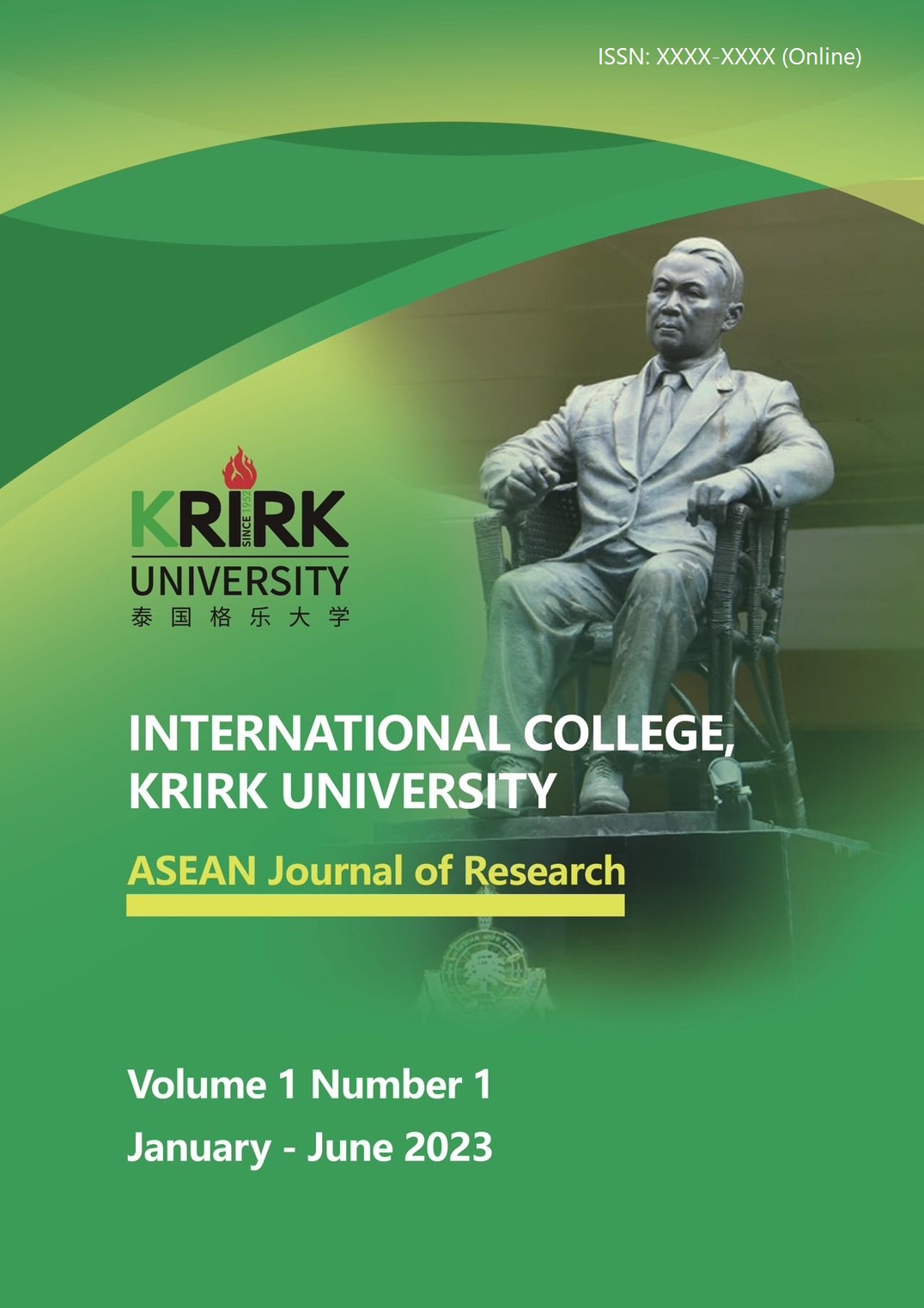Quantitative Analysis of Value Investment in Listed Chinese Banks during the COVID-19 Epidemic
Keywords:
Chinese listed banks, COVID-19, value investment, quantitative analysisAbstract
This research was conducted in order to explore the nexus between return on investment (ROI) from listed Chinese banks and proposed fundamental indicators documented in financial statements during the COVID-19 epidemic period. Hierarchical analysis was employed to test the hypotheses established by the dependent variable ROI and other independent factors including the attribute of enterprise (State-owned or not), price/earnings ratios (PE), earning per share (EPS) as well as Non-performing loan ratio (NPL). The results show that the nature of enterprise has no impact on ROI. However, PE and NPL are negatively associated with ROI, and EPS is positively related to ROI. The results are tested and analyzed for robustness.
References
Abarbanell, J., & Bushee, B.J. (1997). Abnormal Returns to a Fundamental Analysis Strategy. Journal of Accounting Abstracts.http://dx.doi.org/10.2139/ssrn.40740
Abarbanell, J., & Bushee, B.J. (1997). Fundamental Analysis Future Earnings, and Stock Prices. Journal of Accounting Research, 35, 1-24. https://doi.org/10.2307/2491464.
Almas, D., & Duque, J. (2008). Value Investing: The Book-To-Market Effect, Accounting Information, and Stock Returns. https://www.proquest.com/openview/99a61452a1ba1b891197f5487e4ffb05/1?cbl=2026366&diss=y&pq-origsite=gscholar.
Banerjee, P., & Deb, S.G. (2017). Abnormal returns using accounting information within a value portfolio. Accounting Research Journal, 30, 73-88. https://doi.org/10.1108/ARJ-01-2015-0003
Basu, S. (1977). Investment performance of common stocks in relation to their Price Earning ratios: A test of the efficient market hypothesis. J. of Finance, 32(3), 663-682. https://doi.org/10.1111/j.1540-6261.1977.tb01979.x
Beneish, M.D., Lee, C.M., & Tarpley, R.L. (2001). Contextual Fundamental Analysis Through the Prediction of Extreme Returns. Review of Accounting Studies, 6, 165-189. https://doi.org/10.1023/A:1011654624255
Chen (2016). An empirical study on the efficiency of credit assets of state-owned commercial banks in China (Master's thesis, East China Normal University). https://kns.cnki.net/KCMS/detail/detail.aspx?dbname=CMFD201701&filename=1017015206.nh
Daniel, K.D., & Titman, S. (2001). Welcome Market Reactions to Tangible and Intangible Information. https://www.semanticscholar.org/paper/Welcome-Market-Reactions-to-Tangible-and-Intangible-Daniel-Titman/815e85d590c13230842320bddf851bc06e2127af
Fama, E.F., & French, K.R. (2006). Profitability, investment and average returns. Journal of Financial Economics, 82, 491-518.https://doi.org/10.1016/j.jfineco.2005.09.009
Graham, B. (2003). Intelligent Investor (Revised ed., Chapter 14, pp. 348-349). Harper Collin Publisher.
Graham, B., & Dodd, D. L. (2009). Security Analysis (6th ed., Chapter 4, pp. 105-106). Mc Grow Hill.
Griffin, J.M., & Lemmon, M. (2002). Book‐to‐Market Equity, Distress Risk, and Stock Returns. Journal of Finance, 57, 2317-2336.https://doi.org/10.1111/1540-6261.00497
Lev, B., & Thiagarajan (1993). Fundamental Information Analysis. Journal of Accounting Research, 31, 190-215.https://doi.org/10.2307/2491270
Mohanram, P. (2003). Separating Winners from Losers among Low Book-to-Market Stocks using Financial Statement Analysis. Review of Accounting Studies, 10, 133-170. https://doi.org/10.1007/s11142-005-1526-4
Nguyen, P. (2003). Market Underreaction and Predictability in the Cross-Section of Japanese Stock Returns. Capital Markets: Market Efficiency. https://doi.org/10.1016/j.mulfin.2004.08.004
Piotroski, J.D. (2000). Value Investing: The Use of Historical Financial Statement Information to Separate Winners from Losers. Journal of Accounting Research, 38, 1-41. https://doi.org/10.2307/2672906
Qin Xi and Tao Zhu(2022). Value Investing: Evidence From Listed Companies in China’s Banking Industry During the COVID-19 Epidemic. International Journal of Economics and Finance,Vol. 14, No. 11,1-7.
Sharma, M., & Sharma, P. (2009). Prediction of Stock Returns for Growth Firms—A Fundamental Analysis. Vision: The Journal of Business Perspective, 13, 31 - 40. https://doi.org/10.1177/097226290901300303
Wei Wei (2012).An empirical study on the efficiency of listed banks in China (Master's thesis, Central South University). https://kns.cnki.net/KCMS/detail/detail.aspx?dbname=CMFD201301&filename=1012476522.nh
Woodley, M., Jones, S.T., & Reburn, J.P. (2011). Value Stocks and Accounting Screens: Has a Good Rule Gone Bad? Journal of Accounting and Finance, 11, 87-104. http://www.na-businesspress.com/JAF/jones_abstract.html.
Zhu, T., Walsh, J. & Ampornstira, F. (2020). Quantitative analysis of the value investments of listed companies in china's mining industry. Canadian Center of Science and Education (10). https://doi.org/10.5539/ibr.v13n10p31.
Downloads
Published
Versions
- 22.03.2023 (2)
- 30.01.2023 (1)
How to Cite
Issue
Section
License
Copyright (c) 2023 ASEAN Journal of Research

This work is licensed under a Creative Commons Attribution-NonCommercial-NoDerivatives 4.0 International License.
The Copyright belongs to the ASEAN Journal of Research




